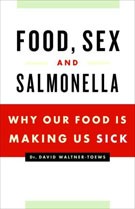Silence of the Songbirds: How We Are Losing the World’s Songbirds and What We Can Do to Save Them and Where the Wild Things Were: Life, Death, and Ecological Wreckage in a Land of Vanishing Predators
In Silence of the Songbirds, Bridget Stutchbury, a biology professor at York University, writes clearly and expressively about the dramatic declines of many songbirds. In her words, “By some estimates, we may have already lost almost half of the songbirds that filled the skies only forty years ago.” Continue reading Silence of the Songbirds: How We Are Losing the World’s Songbirds and What We Can Do to Save Them and Where the Wild Things Were: Life, Death, and Ecological Wreckage in a Land of Vanishing Predators


